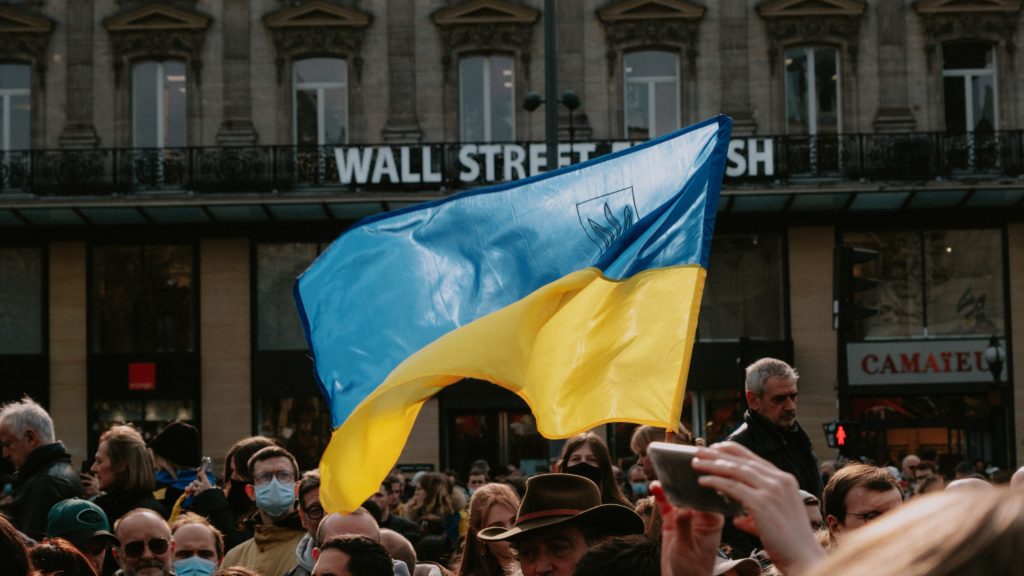The Russo-Ukrainian Conflict and the Response of Switzerland

On 24th February, the Russian military entered the territory of Ukraine under the auspices of a special military operation, aimed at helping the Ukrainians “remove the corrupt government and denazify the country” (Al-Jazeera, 2022). The Russian government presented their case as acting in the interests of the Ukrainian people, especially those living in the Donbass region – a part of the country embroiled in separatist movements and conflict since 2014. These acts have created a humanitarian crisis, with the UN Secretary-General Mr. Antonio Guterres urging, “in the name of humanity, to not start what may be the most devastating war since the start of the century” (UN News, 2022). He further highlights that “all members shall refrain in their international relations from the threat or use of force against the territorial integrity or political independence of any state”, calling the use of force by Russia against Ukraine unacceptable yet, not irreversible (UN, 2022). As a result, the UN has scaled up its humanitarian operations in and around Ukraine, reminding the world of the toll of war and the high cost that everyday innocent people pay in conditions where force is used (UN, 2022). In the meanwhile, The EU was quick to respond in both condemning the behaviour and in applying a plethora of economic sanctions to the Russian Federation (European Council, 2022). However, the participation in the economic sanctioning of Russia was not expected from a rather small actor outside of the EU and EEZ.

On 28th February, the Swiss Federal Council (2022) adopted the packages of sanctions imposed by the EU on 23rd and 25th February. These actions align with the Federal Constitution, where, in Article 184 para. 3 Cst. and Article 185 Cst., the Federal Council is allowed to adopt necessary measures to safeguard Switzerland’s interests and/or external security, independence, and neutrality (Federal Council, 2022). The decision to follow the EU and the US and to fully adopt their sanctions marks a new interpretation and a clear departure from the previous conceptualisation of neutrality. Nonetheless, Switzerland offers to maintain its role of a good offices provider and marks that picking a side, be it once in 500 years, does not signal a massive departure of neutrality. Through these actions, Switzerland reaffirmed that Russia’s military attack indeed was unprecedented and violated international law; it emphasised that the lack of precedent and attack on a sovereign European country was the deciding factor to create a departure from previous approaches to conflict situations (Federal Council, 2022).
The measures applied by Switzerland touch upon import and export of Russian products, designated territories where activities are prohibited, financial measures, and travel sanctions. The most recent update in measures containing goods, issued on 4th March, includes the prohibition of import of military equipment from Russia or Ukraine; prohibition on goods which are intended for use in petroleum refineries; prohibition on dual-use goods, especially military; and a prohibition for goods intended to be utilised in the aeronautics and space industry (Federal Council, 2022). The issued financial measures freeze the assets and economic resources of different Russian officials and people associated with them, including Vladimir Putin, Mikhail Mishustin, and Sergey Lavrov (Federal Council, 2022). Furthermore, Switzerland prohibits the purchasing of securities and money market instruments of and granting loans to certain Russian nationals, as well as does not allow deposits of more than 100,000 CHF from Russian nationals (Federal Council, 2022). Existing deposits of over 100,000 CHF have to be declared to the authorities; no transactions with the Central Bank of Russia and no specialised financial messaging services are permitted for Russian nationals or legal/natural persons in Russia (Federal Council, 2022). Furthermore, certain services originating or entering Russia and Ukraine are prohibited from being financed and attended to (Federal Council, 2022). Lastly, various travel sanctions have been applied, including the restriction of any Russian aircraft, whether originating from Russia or being registered there, from flying and landing in the Swiss airspace (Federal Council, 2022). These measures have been taken in a step where Switzerland “reaffirms its solidarity with Ukraine and its people” (Federal Council, 2022).
Since the beginning of the conflict, 2,155,326 people have fled Ukraine to its neighbouring countries, with Poland hosting most of the war refugees (UNHCR, 2022). As a step of solidarity, SBB has offered free public transport to all arriving Ukrainian refugees and various telecommunication networks in Switzerland have waived all fees for communication with Ukraine (The Local, 2022). The Swiss government has committed to delivering 25 tonnes of relief supplies to Warsaw, Poland (estimation of a value of CHF 400,000) as part of the first Swiss aid package (total amount CHF 8,000,000) (Federal Council, 2022). In the meanwhile, the Swiss community has organised together to collect humanitarian assistance for those fleeing Ukraine and those remaining in Ukraine – it has been estimated that, at the current rate, Kiev could remain without food and water in a week from now (Apollo.lv, 2022). Furthermore, various protests in Geneva and Bern have been organised to express solidarity with Ukrainian citizens and residents. Altogether, the situation seems to keep accelerating into more dangerous territories, primarily through the usage of psychological warfare and attacks on civilian objects. Switzerland’s approach has marked a relatively powerful departure from the complete neutrality it presented throughout the last 500 years.
Written by: Krista Tingbrand / Mercy Hands Europe

